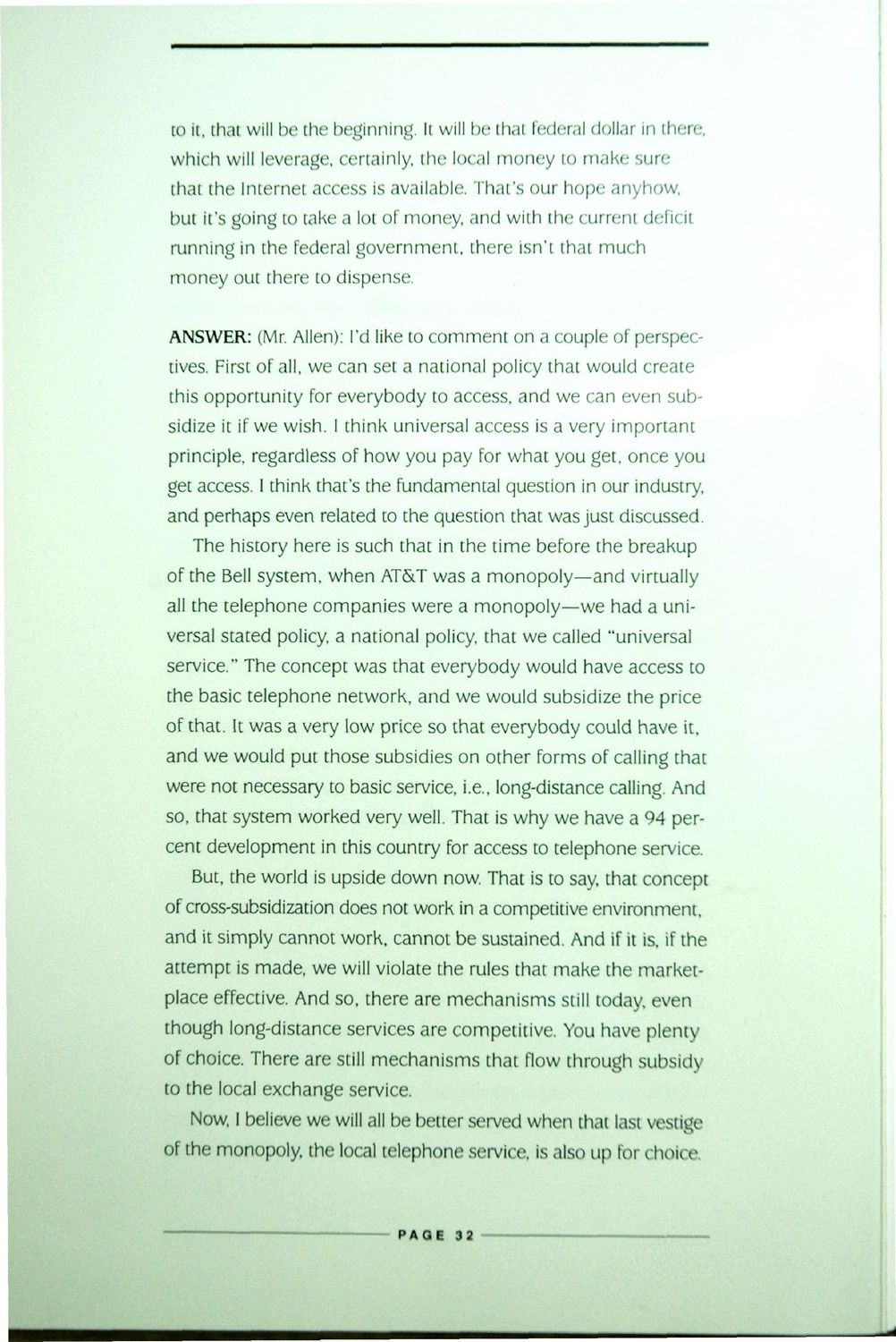| |
| |
Caption: Dedication - Grainger Engineering Library Symposium
This is a reduced-resolution page image for fast online browsing.

EXTRACTED TEXT FROM PAGE:
to it, that will be the beginning. It will be that federal dollar in there, which will leverage, certainly, the local money to make sure that the Internet access is available. That's our hope anyhow, but it's going to take a lot of money, and with the current deficit running in the federal government, there isn't that much money out there to dispense. ANSWER: (Mr. Allen): I'd like to comment on a couple of perspectives. First of all, we can set a national policy that would create this opportunity for everybody to access, and we can even subsidize it if we wish. I think universal access is a very important principle, regardless of how you pay for what you get, once you get access. I think that's the fundamental question in our industry, and perhaps even related to the question that was just discussed. The history here is such that in the time before the breakup of the Bell system, when AT&T was a monopoly—and virtually all the telephone companies were a monopoly—we had a universal stated policy, a national policy, that we called "universal service." The concept was that everybody would have access to the basic telephone network, and we would subsidize the price of that. It was a very low price so that everybody could have it, and we would put those subsidies on other forms of calling that were not necessary to basic service, i.e., long-distance calling. And so, that system worked very well. That is why we have a 94 percent development in this country for access to telephone service But, the world is upside down now That is to say, that concept of cross-subsidization does not work in a competitive environment, and it simply cannot work, cannot be sustained. And if it is, if the attempt is made, we will violate the rules that make the marketplace effective. And so, there are mechanisms still today, even though long-distance services are competitive. You have plenty of choice. There are still mechanisms that flow through subsidy to the local exchange service. Now, I believe we will all be better served when that last vestige of the monopoly, the local telephone service, is also up for choice
| |